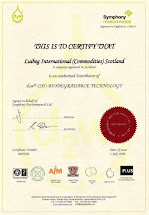High tides wash ashore 640 tons of rubbish
Sukhada Tatke
28 July 2009
MUMBAI: The Arabian Sea has thrown back at the city what the city has been throwing into it for so long. During the three days last week when exceptionally high tides hit Mumbai’s coastline, leading to heartache and damage for some while proving to be a spectator sport for others, a variety of non-biodegradable waste also made its way from the sea into the city.
Data compiled by the BMC shows that the city got as much as 640 tons (6.4 lakh kg) of waste comprising plastic, polythene bags and thermocol from the sea. This is more than four times the average amount that is dumped on the coast in three days.
“We have contractors to clean up beaches and labourers usually work until 1 pm. This time, however, they had to work overtime. They were asked to collect the garbage immediately and make sure it didn’t stay on the road for too long,’’ additional municipal commissioner R A Rajeev said. “We found a lot of plastic, thermocol and polythene bags. We had to use as many as 107 heavy vehicles to ferry the waste,’’ he added.
The waste was taken to the Deonar dumping ground. The sea at Juhu and Dadar threw out the maximum amount of garbage (1.18 lakh kg and 3.35 lakh kg respectively). Madh and Manori gave out 37,000 kg and 23,000 kg, while Versova and its extension threw out 29,000 kg and 22,000 kg. People whose homes were destroyed by the tides also got the largest amount of rubbish. “It was not just the first day, when the tide was 5.05 metres tall, that we suffered.
The next two days, which saw 5.01-m and 4.94-m tides, left us completely shattered. We spent two days after that getting rid of the water and cleaning out the garbage,’’ 53-year-old Pratibhatai Parkar of the Geeta Nagar slum at Cuffe Parade said.
Environmentalists are not surprised. “It reflects very poorly on us socially. How will foreigners, lured here by the Incredible India tourism ads, feel when they are hit by a wave filled with offal and coackroaches on Marine Drive?’’ asked Mumbai Environmental Social Network (MESN) member Rishi Aggarwal. “Most of the rubbish makes its way into the sea through the nullahs, and it also reflects our appalling garbage-segregation performance,’’ he added. Francin Pinto, director of the NGO, Garbage Concern, pointed to the public’s lack of awareness. “The problem is that people are just not sensitised. And even if you take the initiative and try to sensitise them, those living in theslums are usually more responsive to learning than those in high-rises,’’ she said. “Slumdwellers at least understand that the waste they throw into gutters may come back to haunt them,’’ she added.
Tuesday, 28 July 2009
Subscribe to:
Post Comments (Atom)



No comments:
Post a Comment